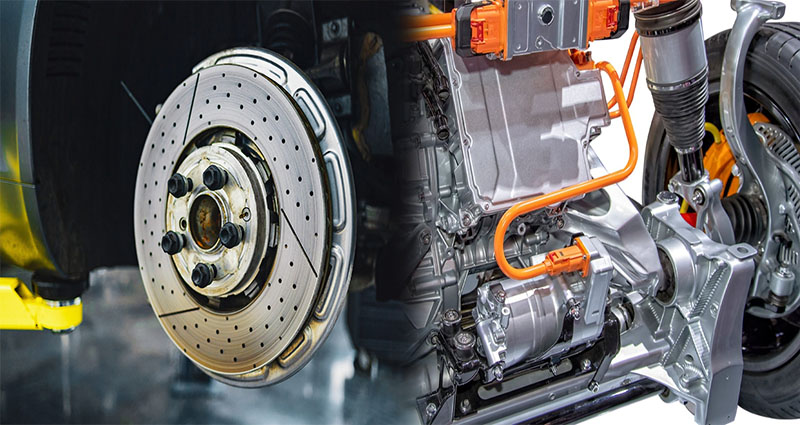As the world makes a collective effort to combat climate change, the automotive industry has undergone a significant transformation towards greener and more sustainable transportation solutions. Electric vehicles (EVs) have emerged as a viable alternative to combustion engine vehicles, offering reduced emissions and a roadmap to a cleaner future. Key to the success and wider adoption of electric vehicles is the implementation of regenerative braking technology. In this article, we delve into the concept of regenerative braking and its impact on energy efficiency for electric vehicles.
Understanding Regenerative Braking
Regenerative braking is an innovative technology that allows electric vehicles to recover and store energy that would otherwise be dissipated as heat during braking. Traditionally, in internal combustion engine vehicles, kinetic energy is lost when the brakes are applied, resulting in wasted energy. In contrast, regenerative braking system in electric vehicles captures this energy and converts it into usable electricity, which is then stored in the vehicle’s battery for later use.
How Regenerative Braking Works
The regenerative braking process begins when a driver applies the brakes in an electric vehicle. Instead of relying solely on the mechanical friction between brake pads and rotors, electric vehicles use an electric motor to slow down the wheels. The electric motor operates in reverse mode, acting as a generator that converts the kinetic energy of the moving vehicle back into electrical energy. This energy is then fed back into the vehicle’s battery, recharging it and increasing its overall state of charge.
Benefits of Regenerative Braking
- Energy Efficiency: By recovering and reusing energy that would otherwise be lost, regenerative braking greatly improves the energy efficiency of electric vehicles. It allows the vehicle to travel longer distances on a single charge, leading to increased range and reduced reliance on external charging infrastructure. This translates to greater convenience and flexibility for EV owners.
- Extended Battery Life: The implementation of regenerative braking technology also contributes to the longevity and overall health of the electric vehicle’s battery. By leveraging regenerative braking, the strain on the battery during regular braking is reduced, as a significant portion of the kinetic energy is recovered. This results in less wear and tear, increasing the battery’s lifespan and reducing the need for premature replacements.
- Enhanced Driving Experience: Regenerative braking provides a smoother and more controlled deceleration compared to traditional braking systems. The electric motor’s ability to convert kinetic energy into electricity allows for precise and adjustable braking, making the driving experience more comfortable and enjoyable. Additionally, regenerative braking reduces brake pad wear, resulting in longer intervals between brake maintenance and replacements.
- Reduced Environmental Impact: By utilizing regenerative braking, electric vehicles contribute to a significant reduction in carbon emissions. The recovery and reuse of energy during braking result in less energy demand from the electricity grid and, consequently, less reliance on fossil fuel-based power generation. This contributes to a cleaner and greener transportation ecosystem.
Future Developments
As the demand for electric vehicles continues to rise, advancements in regenerative braking technology are on the horizon. Researchers and engineers are exploring ways to improve efficiency and maximize energy recovery during the braking process. Innovations such as advanced regenerative braking algorithms, optimized motor control systems, and enhanced battery technologies will further enhance the overall performance, range, and efficiency of electric vehicles.
Regenerative braking is a game-changing technology that enhances energy efficiency and sustainability in the world of electric vehicles. By recovering and reusing energy that would otherwise be wasted during braking, electric vehicles are able to extend their range, extend battery life, and reduce carbon emissions. As the technology continues to evolve, we can expect even greater efficiency gains and advancements that will propel electric vehicles into the mainstream, ushering in a new era of sustainable transportation.





